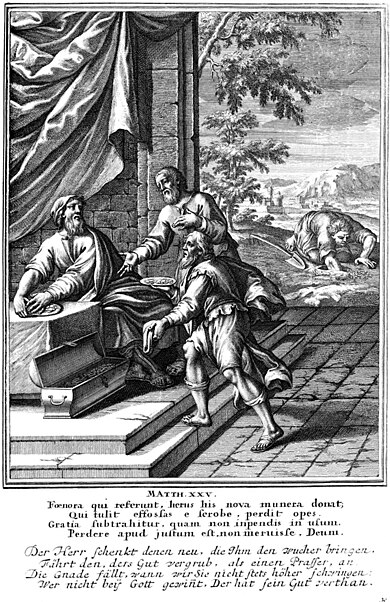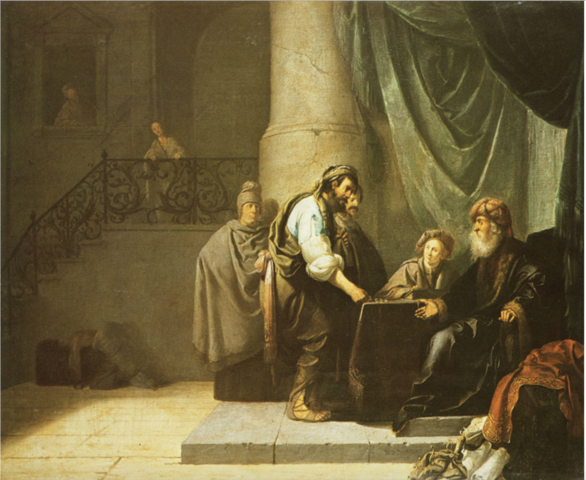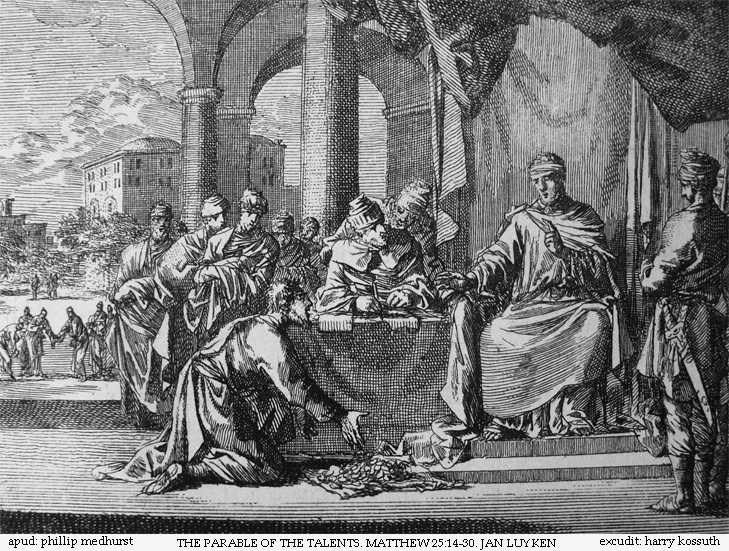November 19, 2017: World Day of the Poor
For 1st reading
For Psalm 128
- Psalm 128: Blessed are those (33A)/ Celoni: sheet music and related demo, written for today (plus variant)
For 2nd reading
- Soon and very soon/ Crouch
- We are the light of the world/ Greif: (sheet music); contemporary (sheet music)
- We will be the light/ Angotti, Garcia
- Children of the day/ Moore
For gospel
- When Jesus comes to reward his servants/Will Jesus find us watching?/ Crosby
- It's the small things/ Troccoli
- Use what you got, from Let it Start/ Schrader
- Find us ready/ Booth: sheet music
- City of God/ Schutte: sheet music
- Sing a new church/ Dufner: sheet music ("use our gifts")
- Here at this table/ Whitaker: sheet music (I'd like to tell you I'm including it as a reference to the eschatological banquet, but it was just today's earworm.)
Psalm 34 settings for World Day of the Poor
- The cry of the poor/ Foley: sheet music
- The Lord hears the cry of the poor/ Petty, Bolduc
- Psalm 34: The Lord hears the cry of the poor/ Celoni: sheet music
- Psalm 34:17-20,22: The righteous cry out and the Lord hears/ Mui
From Ed Bolduc's blog
- Blessed are those who fear the Lord/ Bolduc: leadsheet (psalm)
- A rightful place/ Angrisano
- Awake, O Sleeper/ Ndolo
- Awake to the Day Bolduc
- Behold the Lamb of God/ Maher
- Christ is Lord/ Walther
- Live in Me/ Bolduc: lyrics+
For upcoming celebrations
- Psalm 23: The Lord, my Shepherd (34A)/ Celoni: sheet music and related demo, for Christ the King (11/26)
- Psalm 80: Lord, make us turn to you/ Celoni: sheet music and demo, for 12/3
- Psalm 85: Let us see Your kindness (Advent 2B)/ Celoni: sheet music and related demo, for 12/10
“The Lord heard the cry of the poor." The Church has always understood the importance of this cry. Peter asked that seven men “full of the Spirit and wisdom” be chosen to care for the poor. The earliest community realized that being Jesus' disciple meant demonstrating solidarity, in obedience to his proclamation that the poor are blessed. “They distributed their possessions them to all, as any had need.” Luke's words are addressed to us, to sustain our witness and encourage our care for the needy. “Has not God chosen those poor in the world to be rich in faith and heirs of the kingdom that he promised to those who love him? But you have dishonored the poor.... What does it profit if you say you have faith but don't have works? Can your faith save you? If a brother or sister is poorly clothed and lacks food, and you say, ‘Go in peace; be warmed and filled,” without giving them what their body needs, what does it profit? Faith without works is dead.” When Christians haven't heeded this appeal, the Holy Spirit has called them to fix their gaze on what's essential, raising people up to devote their lives to the poor. How many Christians in simplicity, humility, and charity, have served them!
Francis of Assisi was not satisfied to embrace lepers and give them alms, but chose to stay with them. He saw this as the turning point of his conversion: “When I was in my sins, it seemed too bitter to look on lepers, and the Lord led me among them and I showed them mercy. When I left, what had seemed bitter seemed sweet.” This shows the transformative power of charity and Christian living. Francis kept his eye on Christ and saw and served him in the poor.
We may think of the poor simply as the beneficiaries of our occasional volunteer work or impromptu acts of generosity, but such acts should lead to a true encounter and sharing with the poor that becomes a way of life and proves the authenticity of our prayer and discipleship. This gives rise to joy and peace, because we touch the flesh of Christ. To encounter Christ, we must touch him in the poor, as a response to the sacramental communion of the Eucharist. The Body of Christ, broken at Mass, can be seen in the most vulnerable. “To honor the body of Christ, don't scorn it when it's naked; don't honor Christ with vestments, then neglect him suffering from cold and nakedness” (John Chrysostom).
Draw near to the poor, encounter them, meet their gaze, embrace them, and let them feel love. Step out of certainties and comforts, and acknowledge the value of poverty.
Poverty is a call to follow Jesus in his poverty. It means walking behind and beside him, a journey to beatitude. It's having a humble heart that accepts our limitations and sinfulness and enables us to overcome the temptation to feel omnipotent. It's an attitude that avoids looking upon money, career, and luxury as our goal and condition for happiness. It creates the conditions for shouldering our responsibilities with trust in God’s closeness and grace. It allows us to judge how to use material goods and build relationships (Catechism 25-45).
We need to hear the poor and commit to end their marginalization. And I ask the poor not to lose the sense of evangelical poverty. Poverty challenges us in faces of suffering, marginalization, oppression, violence, imprisonment, war, deprivation of freedom and dignity, ignorance, illiteracy, medical emergencies, un/underemployment, trafficking, exile, and forced migration—not to mention poverty born of injustice, moral degeneration, greed, and indifference; it has the face of all exploited by base interests. We can't be resigned to see it grow worldwide while wealth accumulates in the hands of a privileged few. Poverty stifles initiative of people seeking work, dulls the sense of responsibility, and demeans the merit of productive workers. We must respond with new vision.
The poor belong to the Church and require of us a fundamental option on their behalf. Blessed those who help the poor; they bring hope. Blessed those who reach beyond barriers and console wounds. Blessed those who call down God's blessing and ask nothing in exchange.
The World Day of the Poor helps Christians become a greater sign of Christ’s charity for those in need. Look to all who plead for our help and solidarity. React against the culture of discard and waste; embrace the culture of encounter. Open yourself and share with the poor through concrete signs. God created heaven and earth for all, but some have erected barriers, betraying the gift meant for all.
Create moments of encounter, friendship, solidarity, and concrete help. Invite the poor and volunteers to celebrate the Eucharist together today. The kingship of Christ, celebrated next Sunday, is most evident on Golgotha, when the Innocent One reveals the fullness of God’s love. Jesus’ abandonment to the Father expresses his utter poverty and reveals Love's power to raise him from the dead.
Draw close to poor people who seek protection and assistance; it's a favorable moment to encounter God. Welcome them as honored guests; they can teach us and help us live the faith. Trusting and ready to receive help, they quietly show us it's essential to live simply and abandon ourselves to God.
Pray. Remember the Our Father is the prayer of the poor; asking for bread expresses our entrustment to God for our basic needs. Everything Jesus taught us in the prayer expresses the cry of all who lack what they need. He taught us to pray the words the poor speak to our Father. It's prayed in the plural: the bread we ask for is “ours”; that entails sharing and joint responsibility. In the prayer we recognize our need to overcome selfishness to enter into the joy of mutual acceptance. This Day should allow us to grow in the conviction that sharing with the poor enables us to understand that the poor are not a problem but a resource to draw from as we strive to accept and live the gospel. Full text
for background and suggested questions, prayers, and action.
Read
 |
| Animate |
- Prv 31:10-13, 19-20, 30-31 A worthy wife is more valuable than pearls. She brings good, works with loving hands, and reaches out to the poor and needy. Charm is deceptive, but the woman who fears the Lord is to be praised and rewarded.
- Ps 128:1-5 "Blessed are those who fear the Lord" and walk in his ways! Your wife and children will bless you....
- 1 Thes 5:1-6 We don't need to write you about times and seasons; you know the day of the Lord will come like a thief. When people are saying, "Peace and security," disaster will come, but you're children of the light. Don't sleep like the rest, but stay alert.
- Mt 25:14-30 "A man entrusted his possessions to his servants—5, 2, and 1 talents—then left. The ones who got 5 and 2 made 5 and 2 more, but the one who got 1 buried it. When the master returned, the ones who got 5 and 2 reported their earnings and were given great responsibilities for their faithfulness, but the other returned the talent, saying he was afraid of the master's demands, and was thrown into the darkness for not at least earning interest. To everyone who has, more will be given, but from the one who has not, even what he has will be taken."
|
|
||||
|
|
- Creighton: The master invested in his servants. The 3rd servant showed no initiative; the others took a risk and could have lost all the money they were given. We are those servants. What will we do with what God has given us? Will we make the best use of our talents? We can give glory to God and help each other. We can be like the wife who takes her husband’s love and gives back more. We should be like the servants who take a risk and return more than they were given. Don't hide your light or bury your talents....
- One Bread, One Body: "Called to greatness": The Lord wants to entrust great things to us, but we must first be faithful in small matters. St. Thérèse did little things well; then the Lord entrusted her with great things: being a Doctor of the Church and patroness of the Church's mission work....
- Passionist: Much of today's parable deals with the servant who out of fear buried the one coin. Sometimes we fear using our talents, afraid of making mistakes, what others might think, or not being up to the task. The "middle" servant avoids a common trap: he doesn't seem to mind that the first servant got more than he; he just makes good with what he got. I can be envious of those who seem more talented, whether they do what I do better, or do more. Acting out of fear, as one servant did, or jealousy, as another could have done, is self-absorption; when I’m concerned about how I look or stack up against others, it's about me. The middle servant neither does that nor look down on the last servant. God has given me love, grace, and other gifts which may not seem as profound, important, or numerous as others', but I'm called to use them for the kingdom's sake. If we use our gifts the best we can, we needn't fear “the day of the Lord”; we'll be “children of light.” We need not compare ourselves to others, but instead, like the “worthy wife,” can serve the poor. May we not waste time in fear or envy but use what we've been given....
- DailyScripture.net: "Settling accounts": In Jesus' time, wealthy merchants had to travel and leave matters to others while away. The parable says the master trusted and rewarded or punished his servants. God gives the means to use well the talents he's given us. Do I seek to serve God with the gifts I've received?
- Trumped saints, from Universalis: St Roque González, Jesuit priest and martyr, and companions, martyrs. Seen The Mission about their "Paraguay reductions"?
Dress legend
- 'Pearl' tie bar: A worthy wife is more valuable than pearls (1st reading)
- 'Heart' pin: Her husband, entrusting his heart to her,... (1st reading)
- 'Prize' pin: ...has an unfailing prize (1st reading); rewards given to two servants (gospel)
- 'Sheep' tie bar: She obtains wool,... (1st reading)
- 'Hands' pin: ...works with loving hands, and reaches out her hands to the poor. (1st reading)
- 'Walker' tie pin: Blessed all who walk in the Lord's ways (psalm)
- 'Fruits (with grapes)' tie: You'll eat the fruit of your handiwork. If you fear the Lord, your wife shall be like a fruitful vine (psalm)
- 'Clocks' suspenders: We don't need to write you about times; the day of the Lord will come like a thief (2nd reading)
- 'Street light' tie bar: You are children of the light (2nd reading)
- 'No peace' button: When people say, "Peace and security," sudden disaster comes (2nd reading)
- 'Coin' button: The man who received one talent buried it (gospel)
- 'Abacus' tie pin: The master, returning, settled accounts with his servants (gospel)
- Green shirt: Ordinary Time season





No comments:
Post a Comment